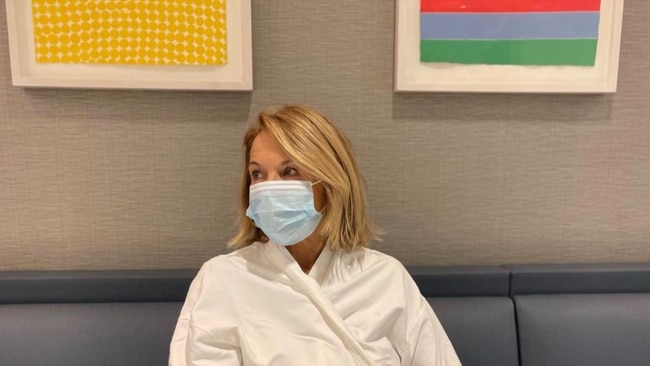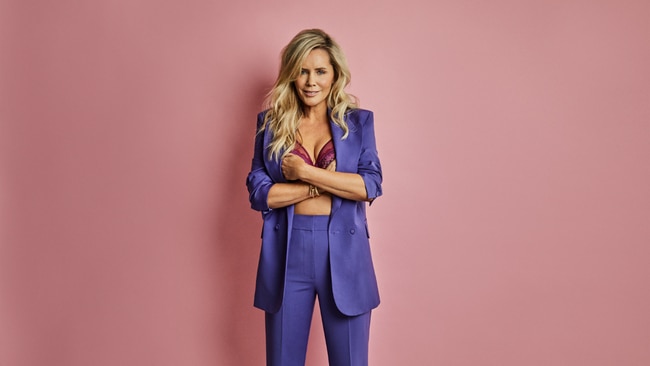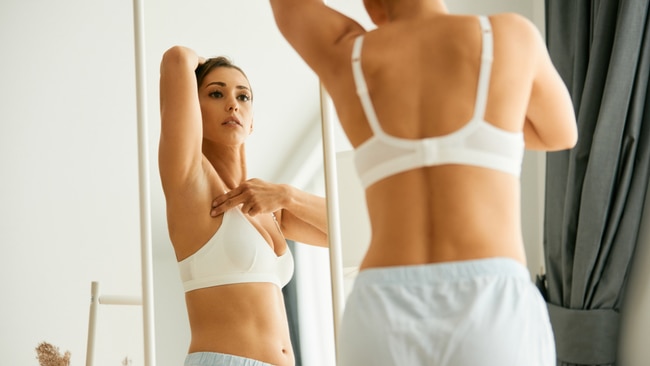Are we about to see a breast cancer spike?
If you’ve been putting your breast check off, now is the time.

Cancer
Don't miss out on the headlines from Cancer. Followed categories will be added to My News.
The pandemic postponed many routine breast cancer screenings and, as a result, breast cancer diagnoses. Felicity Byrnes investigates the true impact of these delays.
What does breast cancer have to do with the pandemic?
The statistics on breast cancer in Australia are quite startling. One in seven women will be diagnosed at some point in their lifetime, and more than 3000 women die annually from the disease.
Yet, during the pandemic, many of us put mammograms on the back burner. Now, health officials in all quarters are urging women to resume breast-cancer checks, fearing a spate of late diagnoses.
“Don’t delay, breast cancer doesn’t wait,” warns Vicki Durston, director of policy, advocacy and support services at the Breast Cancer Network Australia (BCNA), who notes that many women skipped or postponed their regular checks during the pandemic because they had other things to manage.
Like what you see? Sign up to our bodyandsoul.com.au newsletter for more stories like this.
“Family, Covid, working from home, those looking after elderly parents– other things took priority over their own health,” she says. As recent Body+Soul cover star Sophie Falkiner highlighted just a few weeks ago, early detection of breast cancer is key – and Durston concurs.
“It means early intervention, which results in better outcomes and increased survival rates,” she tells Body+Soul. Kerry Patford, chief clinical lead for the McGrath Foundation, says a spike in the numbers of breast-cancer detection is expected by the medical community.
“We know there will be lots of cases which weren’t picked up during the past two years that will come to our attention. It’s very disappointing, as we know there are people out there who would have had a far better outcome.”

How do I know if I’m at risk of developing breast cancer?
According to Patford, the biggest risk factors for breast cancer include “being older, being female and having breasts.”
More than 75 per cent of breast cancers are found in women aged 50 years and older, but as the National Breast Council Foundation highlights, around 1000 young women are also diagnosed with breast cancer each year.
One of the biggest myths Patford is keen to correct is that men can’t get breast cancer – because they can. In fact, around 200 men will be diagnosed this year, according to a report by the Australian Institute Of Health And Welfare.
Durston adds another myth is the assumption that breast cancer is family related. “Some people think they must have a family history of breast cancer, but only 5-10 per cent of cases are linked to a strong family history or genetic mutation,” she explains.

Is it vital to have a mammogram now if you missed one during the pandemic?
A spokesperson for the Department Of Health And Aged Care tells Body+Soul that “mammograms find breast cancers early before they can be seen or felt.”
They’re offered for free every two years to women aged over 40 by BreastScreen Australia, so if you’ve been putting yours off, now is the time to make an appointment.
US television journalist Katie Couric, who was recently diagnosed with breast cancer after a postponed mammogram screening, agrees it’s vital that your checks are not delayed.
“Please get your annual mammogram,” she wrote in a personal essay on her website. “I was six months late this time. I shudder to think what might have happened if I had put it off longer.”
As important as regular mammograms are, being breast aware – and seeking medical advice – is imperative. Beyond recognising symptoms (from lumps to changes in breasts, skin and nipples), Patford says, “You know your body, and if something doesn’t feel right, trust your gut instinct. And if you feel you’re not being listened to, get a second opinion.”
What happens at a mammogram appointment?
There are two types of mammograms. One is for screening purposes, which is an X-ray for women with no symptoms. Two images are taken of each breast and the appointment lasts 20 minutes. No doctor referral is required.
A diagnostic mammogram is for women who have symptoms, requiring multiple X-rays. This appointment will be organised by your GP or doctor.
To book a free mammogram with BreastScreen Australia call 13 20 50. If you or someone you know has breast cancer, call the Breast Cancer Network Australia Helpline on 1800 500 258.
Originally published as Are we about to see a breast cancer spike?


